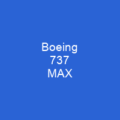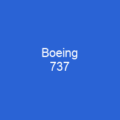Boeing: The Giant in the Skies
Imagine a company that has been shaping the skies for over a century, from its humble beginnings to becoming one of the largest aerospace manufacturers in the world. That’s Boeing. Founded by William E. Boeing on July 15, 1916, as Pacific Aero Products Company, this American multinational corporation has grown into an industry giant with operations spanning across continents and industries.
The Early Days
In its early years, Boeing was more than just a name; it was the dream of William E. Boeing to create something that would change the world. From 1916 to 1929, the company went through several name changes—Pacific Aero Products Company in 1917 and United Aircraft and Transport Corporation in 1929. Each transition marked a significant milestone, reflecting the evolution of aviation technology.
The Merger and Expansion
One of the most pivotal moments in Boeing’s history came on August 1, 1997, when it merged with McDonnell Douglas. This merger was not just a business move; it was a strategic alliance that aimed to dominate the global aerospace market. The combined entity became the fourth-largest defense contractor in the world based on revenue and the largest exporter in the United States by dollar value.
Headquarters and Operations
The corporate headquarters of Boeing has moved several times, reflecting its growth and strategic shifts. From Seattle to Chicago, and finally to Arlington County, Virginia, in 2018, the company’s footprint continues to expand. Today, it is organized into three primary divisions: Boeing Commercial Airplanes (BCA), Boeing Defense, Space & Security (BDS), and Boeing Global Services (BGS).
Financial Struggles and Challenges
Despite its size and influence, Boeing has faced significant challenges. The 2020 pandemic led to massive job cuts, with over 12,000 positions eliminated in May 2020 due to the drop in air travel. In July 2020, the company reported a loss of $2 billion. These financial struggles were exacerbated by issues surrounding its 737 MAX, which faced numerous groundings and safety concerns.
Innovations and Sustainability
Boeing is not just about past achievements; it’s also about future innovations. The company has been at the forefront of developing sustainable aviation solutions, such as biofuels that could reduce flight-related greenhouse-gas emissions by 60 to 80%. In July 2022, Boeing announced a partnership with Mitsubishi to produce carbon-neutral solutions, further cementing its commitment to environmental responsibility.
Controversies and Criticisms
While Boeing has made significant strides in innovation and sustainability, it hasn’t been without controversy. The company faced criticism for its handling of the 737 MAX crisis, with investigations revealing numerous safety concerns and a lack of transparency. Additionally, Boeing’s involvement in wars and arms contracts has drawn protests from students and activists who call for an end to partnerships with the company.
Boeing: A Company in Transition
The journey of Boeing is a testament to the power of innovation and resilience. From its early days as a small aircraft manufacturer to becoming a global leader, Boeing has faced numerous challenges but continues to push boundaries. As it moves forward, the company faces new opportunities and obstacles, all while striving to maintain its position at the forefront of aerospace technology.

Boeing’s story is one of constant evolution, driven by the relentless pursuit of innovation and a commitment to excellence. As it continues to navigate the complex landscape of global aviation, Boeing remains a symbol of what can be achieved through vision, hard work, and dedication.
In conclusion, Boeing stands as a beacon in the aerospace industry, continually pushing the boundaries of what is possible. Its journey from a small aircraft manufacturer to a global leader is a testament to its resilience and innovation. As it moves forward, Boeing will undoubtedly continue to shape the future of aviation, one flight at a time.
You want to know more about Boeing?
This page is based on the article Boeing published in Wikipedia (retrieved on March 5, 2025) and was automatically summarized using artificial intelligence.







